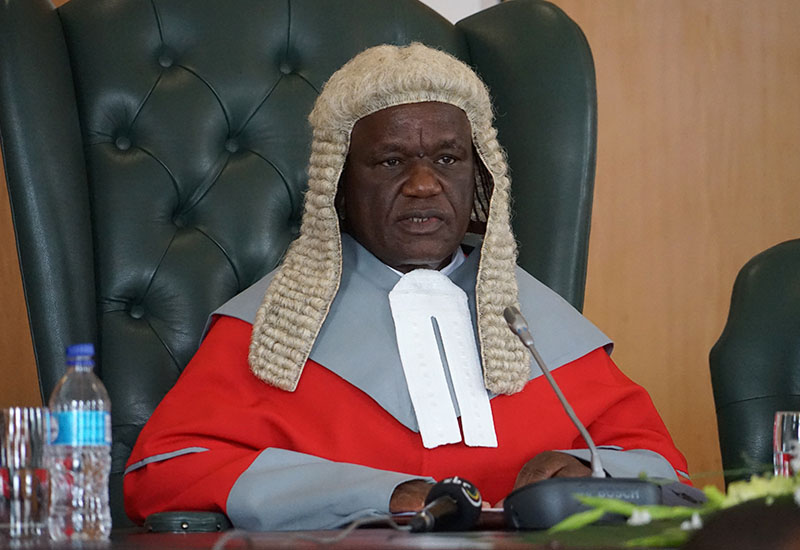Staff Reporter
Last year’s Judicial Service Commission (JSC) operations were hindered by lack of adequate funding from Treasury and the Judiciary had to rely on support from some development partners to finance some of its operations.
This was said by the Chief Justice Luke Malaba yesterday while giving his State of the Judiciary Address during the official opening of the 2022 legal year.
“The JSC experienced the challenge of inadequate funding. Time and again, a range of activities that are carried out of the Judiciary, from the day to day administration of the courts to the construction and upgrading of infrastructure, were hindered by the challenge of inadequate funding.
“In certain instances, the JSC has to cut down on its operations or rely on support from development partners. It is appreciated that the Ministry of Finance allocates funding to the different arms of the State in proportion to the revenue generated by the Consolidated Revenue Fund,” said Chief Justice Malaba.
Justice Malaba said that the Judiciary was unable to fundraise for its operations as the move might have undermined the public’s confidence on the independence and impartiality of the Judiciary.
“A Judiciary that knocks on several doors begging for fundraising or that engages in commercial activities for the generation of income undermines the public’s perception of its ability to adjudicate disputes impartially,” said Justice Malaba.
Chief Justice Malaba called upon Government to constantly review civil servants’ salaries as 88 people, including 18 magistrates, left the JSC citing poor remunerations. He added that human capital was the most important resource in the success of any organisation and said that Government must ensure that it has in place attractive and competitive conditions of service.
The Chief Justice added that Covid 19 pandemic also hindered the smooth operations of the JSC as some court sessions were postponed because of lockdowns announced by Government to curb the spread of the virus.
Chief Justice Malaba said that during the previous legal year, the Supreme Court completed 619 cases while the High Court received 2 864 less cases compared to 2020.




